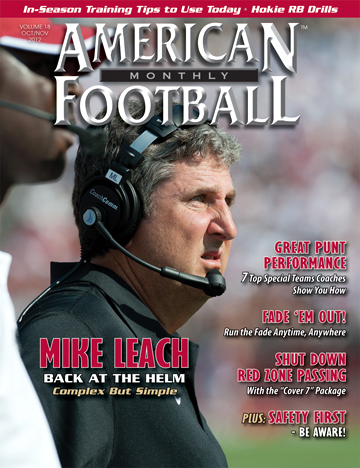Article CategoriesAFM Magazine
|
Coach to Coach Dealing with Disciplineby: Bryon HamiltonHead Coach, Foothill High School, Palo Cedro (CA) © More from this issue I was having dinner on a Saturday night with my family when the doorbell rang. Upon opening the door, I was a little shocked to see a former player that I had not seen in almost ten years standing in front of me. Having past members of my teams stop by to say hello is not an uncommon occurrence but this was different. This young man, who was a part of my first varsity team at Foothill High School, had the distinctive “honor” of being the first player that I had ever dismissed from my football team for disciplinary reasons. The situation included an alcohol-induced confrontation with a teacher and a subsequent confrontation with the on-campus sheriff. Had the incident happened today, I would have the experience to deal with it in a confident and concise manor. This, however, happened during my first year as a head coach and I ....The full article can only be seen by subscribers.
|
|
|||||||
| HOME |
MAGAZINE |
SUBSCRIBE | ONLINE COLUMNISTS | COACHING VIDEOS |
Copyright 2026, AmericanFootballMonthly.com
All Rights Reserved





